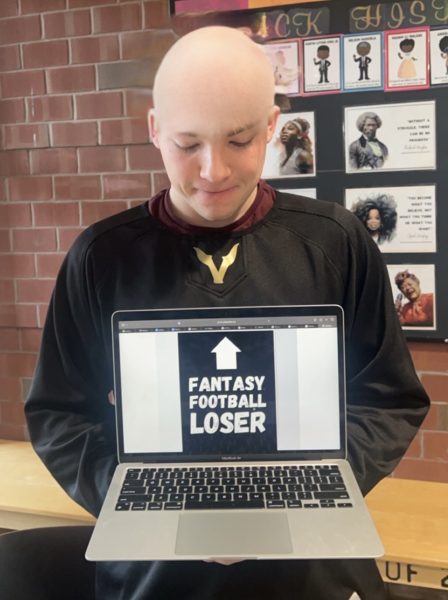Concussions: The New “Hot Topic” or a Serious Cause for Concern
The majority of men who have played football in their life have suffered from at least one concussion. In recent years, the frequency of diagnosed concussions in all sports has seen a rapid increase. A concussion occurs when a person receives a significant blow to the head. The blow causes the brain to quickly move back and forth within the skull, bruising the front and the back of the brain. The bottom of the brain actually grinds against the base of the skull cavity. This sudden violent movement causes the brain to swell, and can damage cells and cause chemical changes within the brain. Once someone is diagnosed with a concussion, it is crucial that they rest and refrain from practicing until they are officially cleared by a doctor.
Glenn Foster has been a football coach at Ipswich High School for many years. He has seen numerous players suffer from concussions throughout his coaching career. A new type of helmet has been introduced that supposedly helps soften the blow from a hard hit. He feels that these new helmets have taught players to lead with their heads instead of with their shoulders, thus increasing their chances of hitting their heads and getting hurt. Foster posed the question, “Are more diagnoses being made because we know more about them and we’re more aware of what they are or are we being so overly cautious right now that we’re diagnosing all sorts of things as concussions?” Derek Chamberlain, a senior at IHS and former captain of the football team, has been playing football all his life. He hasn’t had any officially diagnosed concussions, and feels that players should be able to play if they feel healthy enough. “Sometimes,” remarks Chamberlain, “a hard hit just shakes you up and makes you feel dizzy for a few minutes. You probably don’t have a concussion, so why not wait it out a few minutes?” Zack Mercier, a junior at Whittier Tech, has been on his school’s varsity football team since his sophomore year. Mercier has had four concussions throughout his high school career. Two have been pretty serious, and he’s even missed a few days of school to rest. After each one, he’s sat out for the recommended time in order to give his brain a chance to heal. After his third concussion, Mercier received a new helmet. As mentioned before, this new helmet, called the Revo Speed 360, made by Riddell, has been said to help take the shock of a hit to the head. Wes Welker, who plays for the Denver Broncos, also used this helmet this past season. Both Mercier and Welker got concussions this past year even with the new helmet. Mercier was not impressed with the helmet in the slightest. Instead of making helmets more padded, he feels that facemasks should be removed from helmets all together. He believes this will teach players to lead with their shoulders and not with their heads. “I’d rather have a broken leg than another concussion,” admitted Mercier. Zach’s mother, Chris, feels that athletes who receive blows to the head should report any symptoms they are experiencing. If they are diagnosed, she recommends they sit out until they are cleared again so that they don’t further injure their self. Chris was nervous for her son’s first game back, but felt better knowing that he had waited the full amount of time to heal before going back to do what he does best.
In extreme cases, multiple serious concussions can lead to brain damage later in life. Chronic Traumatic Encephalopathy (CTE) is a progressive degenerative disease of the brain commonly found in athletes that have a history of repetitive brain trauma. Recent research has shown that neuropathologically confirmed CTE has been detected in retired NFL players who have a history of repetitive brain trauma, especially those who have received numerous concussions. The brain trauma can trigger progressive degeneration of brain tissue. On May 2, 2012, former NFL player Junior Seau passed away due to a self-inflicted gunshot to the chest. Seau developed CTE from hits he sustained during his NFL career. The family of Seau has sued the NFL, claiming his suicide was the result of brain disease caused by these violent hits. The lawsuit accuses the NFL of deliberately ignoring and concealing evidence of the risks associated with traumatic brain injuries. Over 3,800 players have sued the NFL over head injuries. However, the majority of players who have suffered from concussions have gone on to live normal lives. A study is currently being conducted at Boston University to determine the relationship between concussions and CTE.



